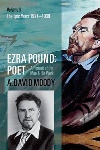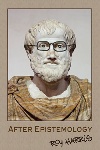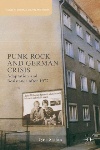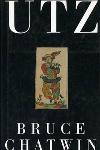Sir David Bell, vice-chancellor, University of Reading, is reading Philip K. Dick’s The Man in the High Castle (Penguin, 2001). “In this 1962 novel, long before ‘alternate history’ novels became fashionable, Dick presents a world in which the Allies have lost the Second World War to the Nazis and Japan controls California. Although known as a science fiction writer, Dick tells of the bleakness of ordinary lives. Hope is possible, not least through an underground writer’s vision of a better future. But nothing is as it seems…”

Matthew Feldman, professor in the history of modern ideas, Teesside University, is reading A. David Moody’s Ezra Pound: Poet, Volume II: The Epic Years 1921-1939 (Oxford University Press, 2014). “The eagerly awaited second instalment of this life of Pound is wonderfully panoramic, covering his time in France and Italy alongside his growing interests in money and musicality. Moody’s close reading of The Cantos is similarly assured and impressive. Less so is his dated analysis of Pound’s gravitation towards the Axis, which has the effect of marginalising Pound’s fascism and burgeoning anti-Semitism as mere ‘contradictions’.”

Dennis Hayes, professor of education, University of Derby, is reading Roy Harris’ After Epistemology (Bright Pen, 2009). “Assumptions about language in traditional epistemology are a myth, argues Harris, and he demolishes the theory that human communication is a reciprocal process of ‘telementation’ in which ‘thoughts’, ‘meanings’, ‘ideas’ or identical bits of ‘rote learning’ are transferred from one mind to another. Recognising that ‘our integrated activities both create and express our knowledge’ does away with such mysterious processes. Epistemology is dead unless epistemologists can answer Harris.”

Uwe Schütte, reader in German, Aston University, is reading Cyrus Shahan’s Punk Rock and German Crisis: Adaptation and Resistance after 1977 (Palgrave Macmillan, 2013). “If only all academic research were as thrilling as this book. Shahan takes an astute look at punk’s infamous yet under-theorised apocalyptic mantra, ‘No future!’ His fascinating analysis – stretching across art, literature and music – reveals how German punk developed a radical aesthetic response to the national crisis wrought by left-wing terrorism in the late 1970s by replacing guns with guitars.”

Peter J. Smith, reader in Renaissance literature, Nottingham Trent University, is reading Bruce Chatwin’s Utz (Jonathan Cape, 1988). “Kaspar Utz is an obsessive collector of Meissen porcelain, which all but fills his flat in Cold War Prague. Permitted, ostensibly on health grounds, an annual visit to the spa waters of Vichy, he is unable to defect, being drawn back to his collection and his unhappy affair with his housemaid Marta. Written in tiny chapters (no more than a page or two in length) in a style that is lean and disciplined, the novella is brilliantly atmospheric.”
Register to continue
Why register?
- Registration is free and only takes a moment
- Once registered, you can read 3 articles a month
- Sign up for our newsletter
Subscribe
Or subscribe for unlimited access to:
- Unlimited access to news, views, insights & reviews
- Digital editions
- Digital access to THE’s university and college rankings analysis
Already registered or a current subscriber?

